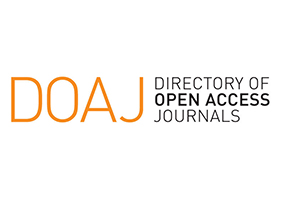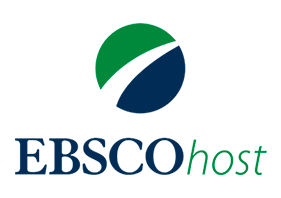Percepción del coworking y su potencial en el desarrollo del ecosistema emprendedor de Guayaquil
DOI:
https://doi.org/10.33304/revinv.v20n1-2025008Resumen
Este estudio analiza la percepción del coworking entre emprendedores en Guayaquil, evaluando su nivel de familiaridad, uso y beneficios esperados. A través de un enfoque mixto, se encuestó a 383 emprendedores y profesionales, complementando con entrevistas a informantes clave. Los resultados indican que, aunque el conocimiento sobre coworking es bajo, existe un interés creciente en sus ventajas, especialmente en la asesoría especializada en finanzas, marketing y gestión del talento humano. Se identificaron barreras como la falta de información, la percepción de costos elevados y la ubicación de estos espacios. Las entrevistas destacaron que los emprendedores consideran que el coworking no debe ser solo un espacio físico, sino ofrecer servicios estratégicos que impulsen el crecimiento empresarial. Se concluye que, aunque la percepción del coworking es positiva, su adopción en Guayaquil depende de estrategias que fortalezcan su difusión, accesibilidad y alineación con las necesidades del ecosistema emprendedor local.
Descargas
Citas
Buehring, J., & Bishop, P. C. (2020, Autumn). Foresight and design: New support for strategic decision making. She Ji: The Journal of Design, Economics, and Innovation, 6(3), 408-432. https://doi.org/gm8hsx
Cao, Z., & Shi, X. (2021). A systematic literature review of entrepreneurial ecosystems in advanced and emerging economies. Small Business Economics, 57, 75–110. https://doi.org/gjs5qz
De Oliveira, L., & de Melo, D. (2021). Ambientes de coworking como potencializadores da inovação. Revista Pensamento Contemporâneo em Administração, 15(3), 67-89. https://doi.org/n7kf
Gómez, R., & Romero, L. M. (2021). Coworking spaces and virtual learning communities in social networks: Case study of #ElClaustroDeIG on Instagram. Aula Abierta, 50(1), 453-464. https://doi.org/n7kb
Handoyo, S., Suharman, H., Ghani, E. K., & Soedarsono, S. (2023, June). A business strategy, operational efficiency, ownership structure, and manufacturing performance: The moderating role of market uncertainty and competition intensity and its implication on open innovation. Journal of Open Innovation: Technology, Market, and Complexity, 9(2), 100039. https://doi.org/nmsw
Hoogendoorn, B., van der Zwan, P., & Thurik, R. (2019). Sustainable entrepreneurship: The role of perceived barriers and risk. Journal of Business Ethics, 157(4), 1133–1154. https://doi.org/gsjn7p
Johns, J., Yates, E., Charnock, G., Pitts, F. H., Bozkurt, Ö., & Ozdemir Kaya, D. D. (2024). Coworking spaces and workplaces of the future: Critical perspectives on community, context and change. European Management Review. https://doi.org/nmsx
Maher, S., Tantawi, P., & Ragheb, M. A. (2020, August). Coworking spaces: An exploratory study to identify the challenges and different business models in Egypt. The Business and Management Review, 11(1), 206–219. https://tinyurl.com/yc4ndhj5
Mandel, D. (2023). Improving strategic planning: The crucial role of enhancing relationships between management levels. Administrative Sciences, 13(10), 211. https://doi.org/nkhm
Mariotti, I., Capdevila, I., & Lange, B. (2023). Flexible geographies of new working spaces. European Planning Studies, 31(3), 433–444. https://doi.org/nmsz
Martínez-Hinojosa, R. M., Wilches-Medina, A. M., Cárdenas-Giler, D. X., & García-Alay, R. F. (2024). Entrepreneurship, labor market, and productive development policies in Ecuador: Towards an entrepreneur training program. MQRInvestigar, 8(4), 5118-5147. https://doi.org/n7kc
Mordor Intelligence. (2024). Latin America Co-Working Spaces Market Size & Share Analysis - Growth Trends & Forecasts (2024-2029). https://tinyurl.com/5n7ycbkf
Navarrete, D., Whitney, R., & Krstikj, A. (2024). Gentrificación transnacional y nómadas digitales en la zona central de la Ciudad de México. EURE, 51(152), 1-23. https://doi.org/n7kd
Orel, M., Lukes, M., & Zouhar, J. (2024). Fostering wellbeing and satisfaction for micro-entrepreneurs: The role of coworking spaces. Journal of Small Business and Enterprise Development, 31(8), 148-167. https://doi.org/nms2
Orel, M., Mayerhoffer, M., Fratricova, J., Pilkova, A., Starnawska, M., & Horvath, D. (2022). Coworking spaces as talent hubs: The imperative for community building in the changing context of new work. Review of Managerial Science, 16, 1503–1531. https://doi.org/nms3
Oswald, K., & Zhao, X. (2020). What Is a Sustainable Coworking Space? Sustainability, 12(24), 10547. https://doi.org/gr8x2j
Robelski, S., Keller, H., Harth, V., & Mache, S. (2019). Coworking spaces: The better home office? A psychosocial and health-related perspective on an emerging work environment. International Journal of Environmental Research and Public Health, 16(13), 2379. https://doi.org/ggvfdx
Silva, B., & Morgenstern, E. (2022). Fashion coworking: The growth of shared workspaces. En X Encontro de Sustentabilidade em Projeto (ENSUS 2022) (pp. 842-852). Universidade Federal do Sul e Sudeste do Pará (UNIFESSPA). https://tinyurl.com/426hza8c
Travassos, A., Figueiredo, J., & Bloor, M. (2024). Sustainable entrepreneurship and corporate social responsibility: Analysing the state of research. An International Journal of Environmental Health and Sustainability, 10(1), 1-25. https://doi.org/nms4
Tremblay, D.-G., & Scaillerez, A. (2020). Coworking Spaces: New Places for Business Initiatives? Journal of Innovation Economics and Management, 1(31), 39–67. https://tinyurl.com/ycx9x5zt
Wall, S., & Crowe, P. R. (2024). Identifying the social, urban, and environmental co-benefits of coworking spaces in Irish towns. Sustainability, 16(1), 175. https://doi.org/gzj6w8
Descargas
Publicado
Cómo citar
Número
Sección
Licencia

Esta obra está bajo una licencia internacional Creative Commons Atribución-NoComercial-CompartirIgual 4.0.
Los autores conservan los derechos de autor y ceden a la revista el derecho de la primera publicación, con el trabajo registrado bajo la Licencia Creative Commons Atribución-NoComercial-CompartirIgual 4.0 Internacional,que permite a terceros utilizar lo publicado siempre que mencionen la autoría del trabajo y a la primera publicación en I+D Revista de Investigaciones. Los autores pueden realizar otros acuerdos contractuales independientes y adicionales para la distribución no exclusiva de la versión del artículo publicado en esta revista (p. ej., incluirlo en un repositorio institucional o publicarlo en un libro) siempre que indiquen claramente que el trabajo se publicó por primera vez en I+D Revista de Investigaciones.










